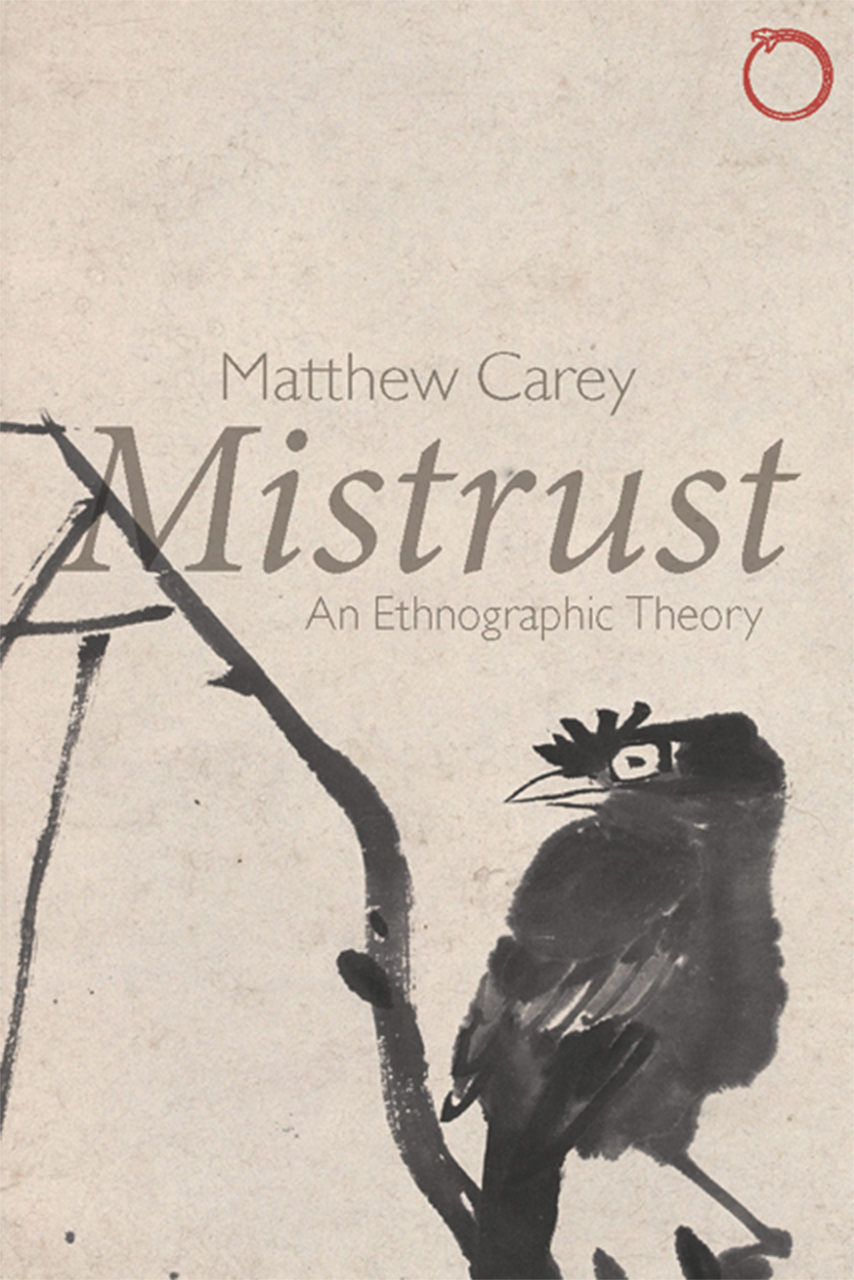MONOGRAPHIC HAPPY HOUR with Matthew Carey on his book “Mistrust”
Date: Thursday the 7th of December, 4pm-6pm
Location: Ethnographic Exploratory, Center for Sundhed og Samfund (4.1.12) Øster Farimagsgade 5, 1353 København
Location: Ethnographic Exploratory, Center for Sundhed og Samfund (4.1.12) Øster Farimagsgade 5, 1353 København
We will serve snacks, wine and beer. Everyone is welcome! We look forward to seeing you!
Program info: MISTRUST: AN ETHNOGRAPHIC THEORY
16.00-16.05 Welcome from Antropologforeningen’s chairman Thomas Hughes
16.05-16.35 Presentation of the book “Mistrust – An Ethnographic Theory” by Matthew Carey, Ph.D. and Assistant Professor at Department of Anthropology, University of Copenhagen
16.35-17.05 Discussion of the book by Susan Reynolds Whyte, Professor at Department of Anthropology, University of Copenhagen
17.05-17.20 Break
17.20-18.00 Open the floor for discussion
More info about the book:
Trust occupies a unique place in contemporary discourse. Seen as both necessary and virtuous, it is variously depicted as enhancing the social fabric, lowering crime rates, increasing happiness, and generating prosperity. It allows for complex political systems, permits human communication, underpins financial instruments and economic institutions, and generally holds society together. Against these overwhelmingly laudable qualities, mistrust often goes unnoticed as a positive social phenomenon, treated as little more than a corrosive absence, a mere negative of trust itself. With this book, Matthew Carey proposes an ethnographic and conceptual exploration of mistrust that raises it up as legitimate stance in its own right.
While mistrust can quickly ruin relationships and even dissolve extensive social ties, Carey shows that it might have other values. Drawing on fieldwork in Morocco’s High Atlas Mountains as well as comparative material from regions stretching from Eastern Europe to Melanesia, he examines the impact of mistrust on practices of conversation and communication, friendship and society, and politics and cooperation. In doing so, he demonstrates that trust is not the only basis for organizing human society and cooperating with others. The result is a provocative but enlightening work that makes us rethink social issues such as suspicion, doubt, and uncertainty.http://press.uchicago.edu/
Trust occupies a unique place in contemporary discourse. Seen as both necessary and virtuous, it is variously depicted as enhancing the social fabric, lowering crime rates, increasing happiness, and generating prosperity. It allows for complex political systems, permits human communication, underpins financial instruments and economic institutions, and generally holds society together. Against these overwhelmingly laudable qualities, mistrust often goes unnoticed as a positive social phenomenon, treated as little more than a corrosive absence, a mere negative of trust itself. With this book, Matthew Carey proposes an ethnographic and conceptual exploration of mistrust that raises it up as legitimate stance in its own right.
While mistrust can quickly ruin relationships and even dissolve extensive social ties, Carey shows that it might have other values. Drawing on fieldwork in Morocco’s High Atlas Mountains as well as comparative material from regions stretching from Eastern Europe to Melanesia, he examines the impact of mistrust on practices of conversation and communication, friendship and society, and politics and cooperation. In doing so, he demonstrates that trust is not the only basis for organizing human society and cooperating with others. The result is a provocative but enlightening work that makes us rethink social issues such as suspicion, doubt, and uncertainty.http://press.uchicago.edu/

